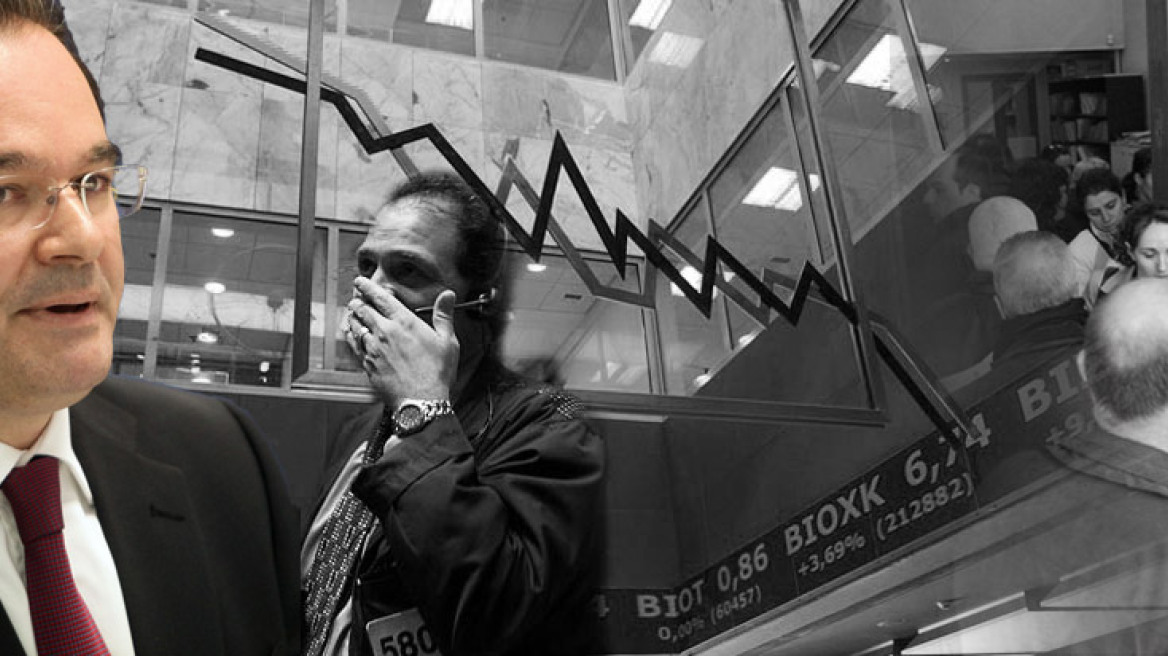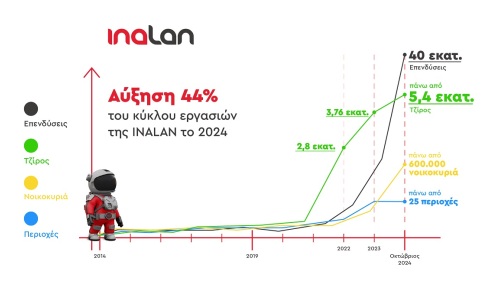
Can it get any worse?
Can it get any worse?
The complete failure of economic policy and the impasseto which it has brought the Greek society are once again demonstrated in the clearest way and unfortunately on many fronts and levels.

UPD:
The complete failure of economic policy and the impasseto which it has
brought the Greek society are once again demonstrated in the clearest
way and unfortunately on many fronts and levels.
The low-tier members of the Troika, who arrived in Athens yesterday, appeared skeptical of the assurances given by the relevant authorities of the Finance Ministry on Memorandum implementation and the Stability Program.
Information from the initial meetings mentions a climate of extreme controversy in the government’s calculations, according to which new measures of 3-3.5 billion euros are already on the way and are enough to achieve this year’s target of deficit reduction.
What we can expect from the high-tier members of the Troika next week thus becomes apparent. The doubting of the policy course, combined with the new comprehensive publication of The Financial Times in which a “haircut” of around 55% to Greek bonds is inevitable, has led to a drop in the ASE, wherein the general index lost 2% or more, sinking back to below 1.400 points.
Furthermore, after a quiet weekend, new pressures are manifested in bonds, with the spread of the 10-year bond climbing to 1.220 units, referring to a lending rate for the country of around 16%!
The fact that the calculations are wrong is made clear in the Finance Minister’s own statements, in which he clarifies that a new loan repayment extension of 110 billion euro is required of the Troika.
The low-tier members of the Troika, who arrived in Athens yesterday, appeared skeptical of the assurances given by the relevant authorities of the Finance Ministry on Memorandum implementation and the Stability Program.
Information from the initial meetings mentions a climate of extreme controversy in the government’s calculations, according to which new measures of 3-3.5 billion euros are already on the way and are enough to achieve this year’s target of deficit reduction.
What we can expect from the high-tier members of the Troika next week thus becomes apparent. The doubting of the policy course, combined with the new comprehensive publication of The Financial Times in which a “haircut” of around 55% to Greek bonds is inevitable, has led to a drop in the ASE, wherein the general index lost 2% or more, sinking back to below 1.400 points.
Furthermore, after a quiet weekend, new pressures are manifested in bonds, with the spread of the 10-year bond climbing to 1.220 units, referring to a lending rate for the country of around 16%!
The fact that the calculations are wrong is made clear in the Finance Minister’s own statements, in which he clarifies that a new loan repayment extension of 110 billion euro is required of the Troika.
At the same time, the Economic Situation Statement issued by the IOBE for April records a sharp decline in the country’s economic climate, with significant indications of consumer confidence deterioration.
The proportion of Greek households which indicate that they have more or less increased their savings is in the range of 18-19%, while three out of five consumers report that they can barely cope. Those who say that they have been drawing from their savings remain at 8% for the third month, while those who state that they are in the red remain at 14%.
So, the organization states the following truism: “The economic sentiment indicator is actually at last year’s levels, suggesting that one year after entry into the European support mechanism, the prospects and expectations of businesses and consumers alike have not improved. Conditions that stabilize the economy have not developed, since the uncertainty about the economic policy remains. Reluctance and inertia characterize the economic environment, resulting in poor business expectations, whle most consumers are doubtful about the possibility of economic recovery.
The proportion of Greek households which indicate that they have more or less increased their savings is in the range of 18-19%, while three out of five consumers report that they can barely cope. Those who say that they have been drawing from their savings remain at 8% for the third month, while those who state that they are in the red remain at 14%.
So, the organization states the following truism: “The economic sentiment indicator is actually at last year’s levels, suggesting that one year after entry into the European support mechanism, the prospects and expectations of businesses and consumers alike have not improved. Conditions that stabilize the economy have not developed, since the uncertainty about the economic policy remains. Reluctance and inertia characterize the economic environment, resulting in poor business expectations, whle most consumers are doubtful about the possibility of economic recovery.
UPD:
Ακολουθήστε το protothema.gr στο Google News και μάθετε πρώτοι όλες τις ειδήσεις
Δείτε όλες τις τελευταίες Ειδήσεις από την Ελλάδα και τον Κόσμο, τη στιγμή που συμβαίνουν, στο Protothema.gr
Δείτε όλες τις τελευταίες Ειδήσεις από την Ελλάδα και τον Κόσμο, τη στιγμή που συμβαίνουν, στο Protothema.gr
ΡΟΗ ΕΙΔΗΣΕΩΝ
Ειδήσεις
Δημοφιλή
Σχολιασμένα






































